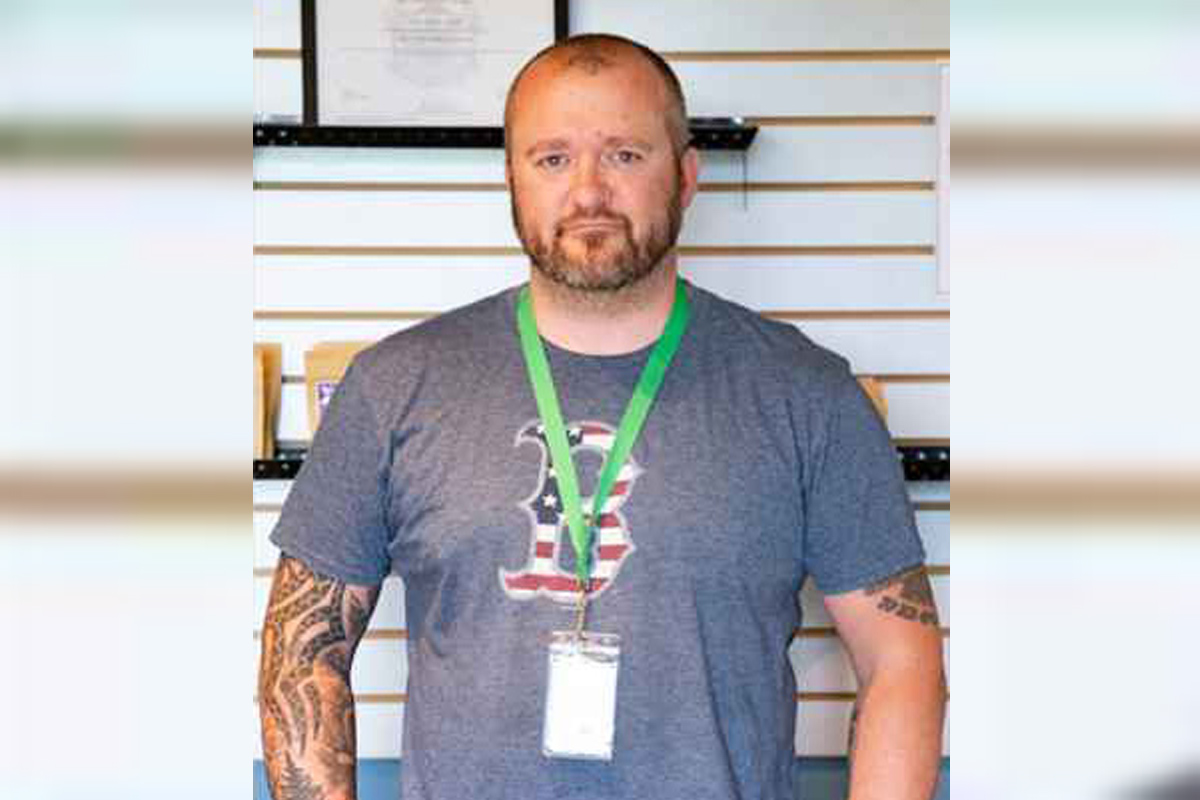
As Maine’s vigorous cannabis scene explodes in retail markets, Aroostook County growers say the boom means more work for less money.
Safe Alternatives of Caribou was the first medical marijuana shop on the East Coast when it opened in Frenchville in 2011. Now The County has nearly 20 medical and adult-use storefronts from the St. John Valley to Houlton.
Medical and adult-use cannabis sales in Maine netted more than $460 million in 2022, according to the Maine Office of Cannabis Policy and Maine Revenue Services.
That’s nearly double the $258 million potatoes brought in last year.
Potatoes are still the state’s No. 1 food crop, with around 90 percent of them grown in northern Maine. But unlike potatoes, little of the state’s cannabis comes from The County. Demand for the product may be up, but the price growers get per pound is trending down. That’s why you won’t find many local growers, according to Aroostook farmers.
“Three or four years ago, you could get $4,000 a pound. Now it’s about $1,300 a pound,” said James Bacon of Caribou, owner of Bacon Holdings LLC, a recreational marijuana growing operation in Presque Isle. “I notice that a lot of the little cultivators are giving up because they can’t make a living.”
Maine legalized recreational marijuana in 2016. The state has 143 licensed cultivators, 222 stores and 118 product manufacturers, according to the latest Office of Cannabis Policy data. On the medical side, there are 736 licensed providers and 1,940 registered caregivers.

Presque Isle voted in 2020 to allow recreational cannabis sales and manufacturing. The city has seven cannabis businesses, ranging from medical to adult use to cultivation. It was the open policy that drew Bacon, also a hay farmer and former auto body shop owner.
Caribou doesn’t allow retail marijuana shops or growing operations, but Presque Isle welcomed him, he said. He can grow up to 2,000 square feet on his current license and will harvest his first crop next month.
It’s not for the faint of heart. Setup costs about half a million dollars, and it could take five years or more to recoup that, Bacon said. Like any other crop, cannabis requires care. Pests like mites and diseases like powdery mildew can decimate an entire harvest.
Like most growers, Bacon operates indoors to have better control over the growing environment. He uses automated processes to adjust things like light and moisture. He plans to coordinate plantings to harvest every 30 to 60 days, selling to recreational businesses in The County and statewide.
Here’s why the high demand for cannabis hurts: More and more people have jumped into growing it, and have gotten really good at it, Bacon said. There’s so much available that growers need a top-tier product in order to sell it — and they’ll get about a third less per pound than a few years ago.
Dave Tucker of Houlton, who owns Crystal Clear Cannabis with his wife, Crystal, agreed.
The COVID-19 pandemic gave the cannabis industry a big boost, he said. People were stuck at home and relief money poured in, at just about the time retail marijuana sales started in Maine.
“Along came a lot of people that jumped into the growing aspect of it, which then flooded the market, and it became a buyer’s market. The buyer was setting the price,” Tucker said.
The Tuckers started Crystal Clear in 2014, when Crystal was diagnosed with a medical condition that responded well to cannabis. Then, a pound of marijuana sold for about $3,200. Now it’s anywhere from $1,200 to $1,600, Tucker said.
The Tuckers grow about 1,000 square feet of medical cannabis, which supplies about 80 percent of their Fort Kent store inventory. They also own rental properties, an office service and convenience store.
Competition has driven prices down, especially in bigger cities like Lewiston and Portland, Tucker said. And with spikes in electricity, rent and shipping, growing costs have nearly doubled.
Despite the challenges, another Aroostook business is growing its Grand Isle operation for both local and statewide markets.
Full Bloom Cannabis became The County’s first adult-use dispensary in 2021. It operates a medical marijuana shop in Fort Kent and adult-use stores in Grand Isle and Presque Isle. The company recently opened a new cultivation building and is expanding its manufacturing facility.
Though the stores also sell products from other Maine growers and manufacturers to offer a diverse selection, everyone benefits when the product is grown locally, company President Steve Rusnack said.
“It’s better for the local Aroostook County economy, because we’re keeping the revenue here and spending it here,” he said.
The new manufacturing building will have a lab and commercial kitchen and will allow Full Bloom to make more products, including the edibles it sells at its own shops, as well as at about 60 other stores across Maine, Rusnack said.
The company plans to grow 300 pounds a year in flower, or smokable product, and another 200 to 300 pounds in material for edibles and concentrates.
Bacon doesn’t think farmers will see $4,000 a pound again for cannabis. But those who can grow larger crops, more than 500 square feet or so, can see modest success, he said.
“It’s a lot of work. You have to do it because you enjoy it,” he said. “It’s not like you’re going to be rich.”







